My garden is surrounded by trees, a mature forest of poplars and maples along one border, and on the opposite side (and scattered throughout) are an assortment of beech, katsura, hornbeams, black gum, cherries, dogwoods, and redbuds that drop an abundance of leaves each autumn. The dense plantings along the property lines capture leaves so that none are permitted to blow onto neighboring properties, so there are often deep piles in November as the breezes blow them about.
The latest windy, rainy day has stripped most of the trees bare, and so I will begin their collection, a bit at a time since there is little reason to hurry. The small areas of lawn, and low growing ground covers will be cleared first, as well as the stone paths and patios, but the majority of the garden beds will be cleaned up on the occasional pleasant winter day when I’m itching to get outside and anxious for spring.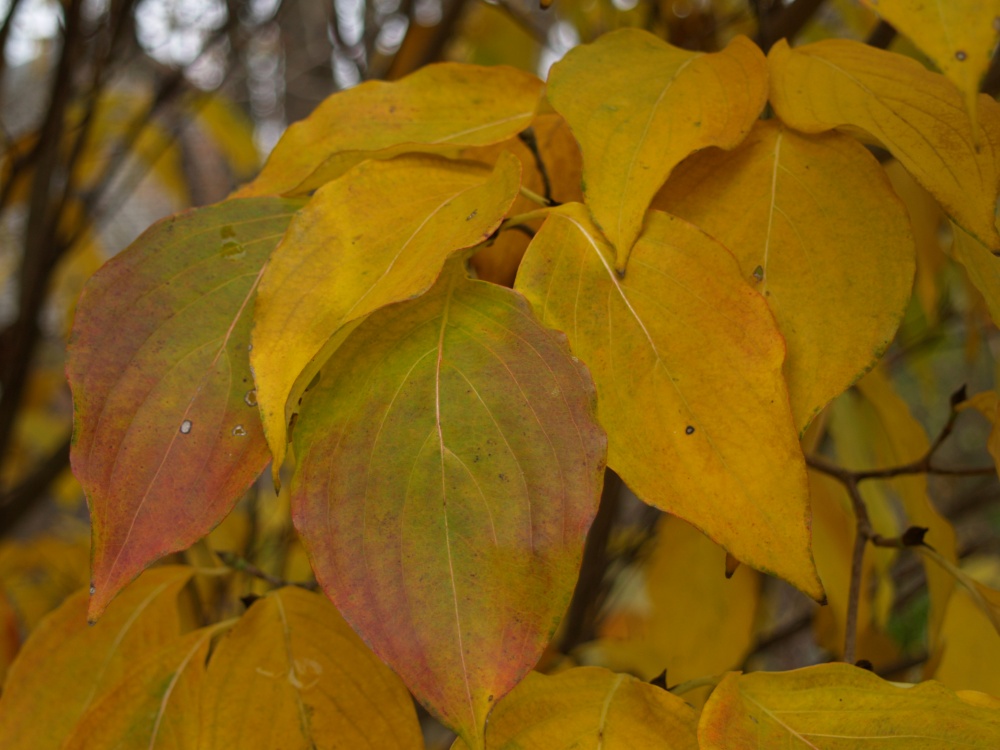
I cannot imagine beginning this daunting task armed only with a leaf rake. The property is large (somewhat over an acre), and my energy limited, so I’ll utilize every mechanical advantage available (mowers and leaf vacuums) to collect leaves. I applaud those who are motivated to perform these chores without resorting to engines that belch pollutants, and I’m all for exercising and enjoying the cool, fresh air, but this is work, not fun, and the quicker and easier it is accomplished the happier I’ll be.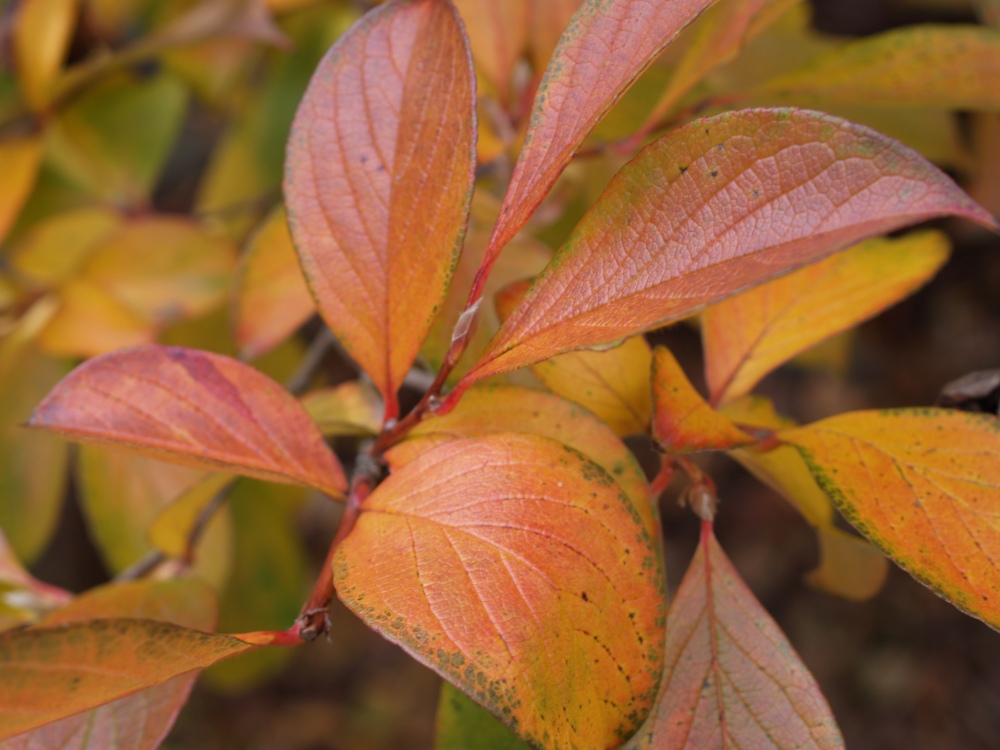
Along the forest’s edge I will not bother with the leaves at all, and the large Oakleaf hydrangeas and various viburnums will not care that leaves are piled beneath. In the areas of the garden closer to the house, and near the garden’s ponds I will vacuum the leaves with an electric blower/vacuum and bag the shredded remnants to mulch new planting areas that are bare soil, and when these areas are covered some of the shredded leaves will go in the compost pile.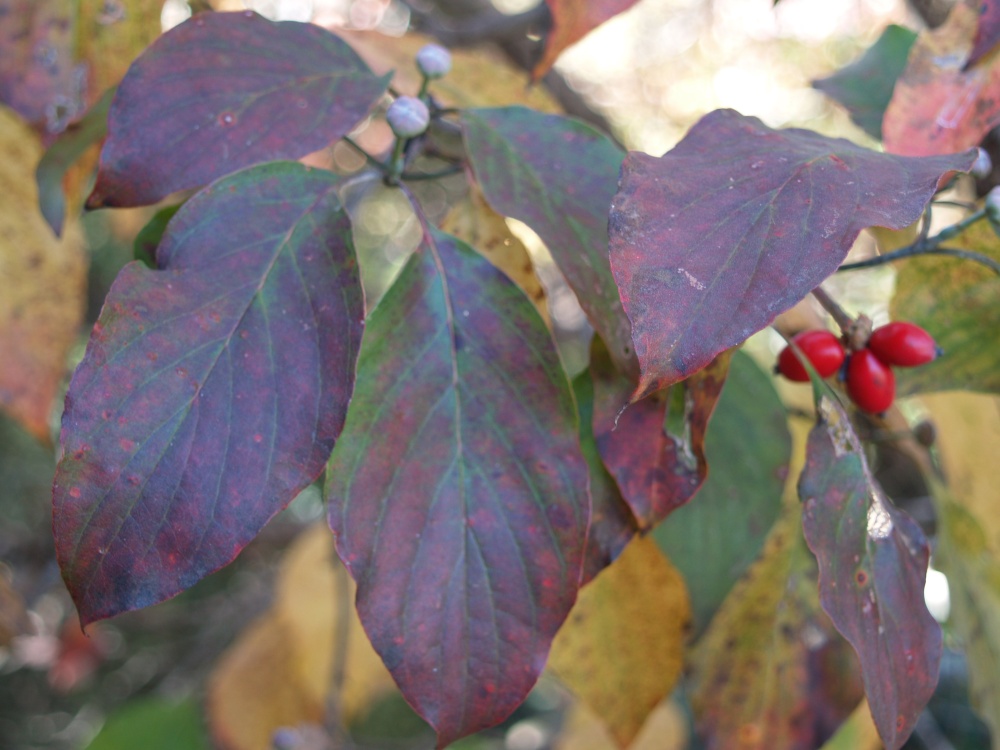
In more open areas of the garden (and these areas are considerable in size) I’ll remove the vacuum’s bag so that the shredded leaves fly in every direction, but fall onto the garden as mulch. The leaf litter improves the soil as it decays and serves as a mulch to conserve moisture and control weeds. I prefer to shred the leaves rather than leaving them whole because they break down quicker, and their appearance is neater, though there are a number of whole leaves that are left behind and covered over.
For the small lawn areas I’ll run the mower over them once the majority of leaves have fallen so that the shredded leaves filter into the grass. The leaves quickly disappear and add some nutrients to the soil as they decay.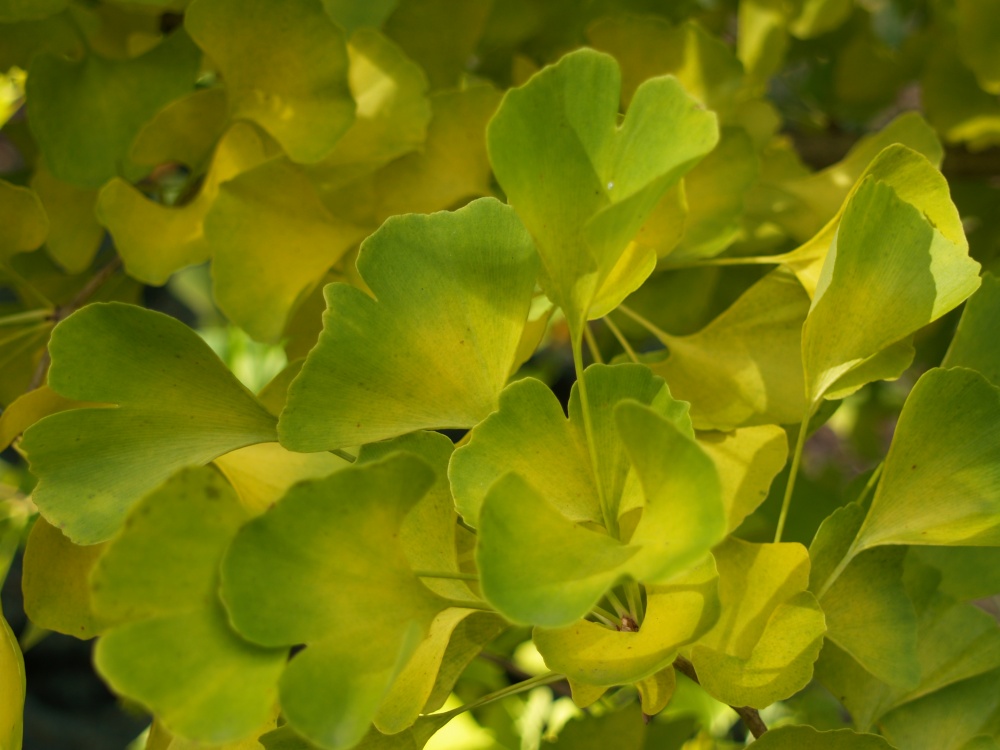
This is what I do. What should you do with your leaves? I understand that many properties are far more manicured than mine, space is more limited, and shredded leaves are not welcome used as a mulch for planted areas.
Composting is far easier than most people expect, though it can be made as difficult as you please. I have a small area in back of my garden shed where I’ve set up inexpensive wire fencing to contain leaves and other debris that I dump through the year. I prefer to shred the leaves, since they are easier for me to move in quantity, and they break down more quickly than whole leaves. I don’t turn the pile, or add any secret concoctions to speed the composting process, but occasionally I’ll dig out a wheelbarrow or two of decent, crumbly compost, and I never have to buy soil for new plantings. There are books written on composting, and if I had to follow those instructions I would have never begun, but an area of twenty-five square feet will hold a surprising quantity of leaves, and with very little effort and practically no expense you will have an answer to get rid of your leaves.
If you don’t have the need or the motivation to rake leaves into a compost pile, the next best alternative is to rake them onto the lawn and run over them with the mower a few times. After a few weeks the finely shredded leaves will disappear, and some organic material will be returned to the soil. The leaves will not cause a thatch problem since they break down quickly.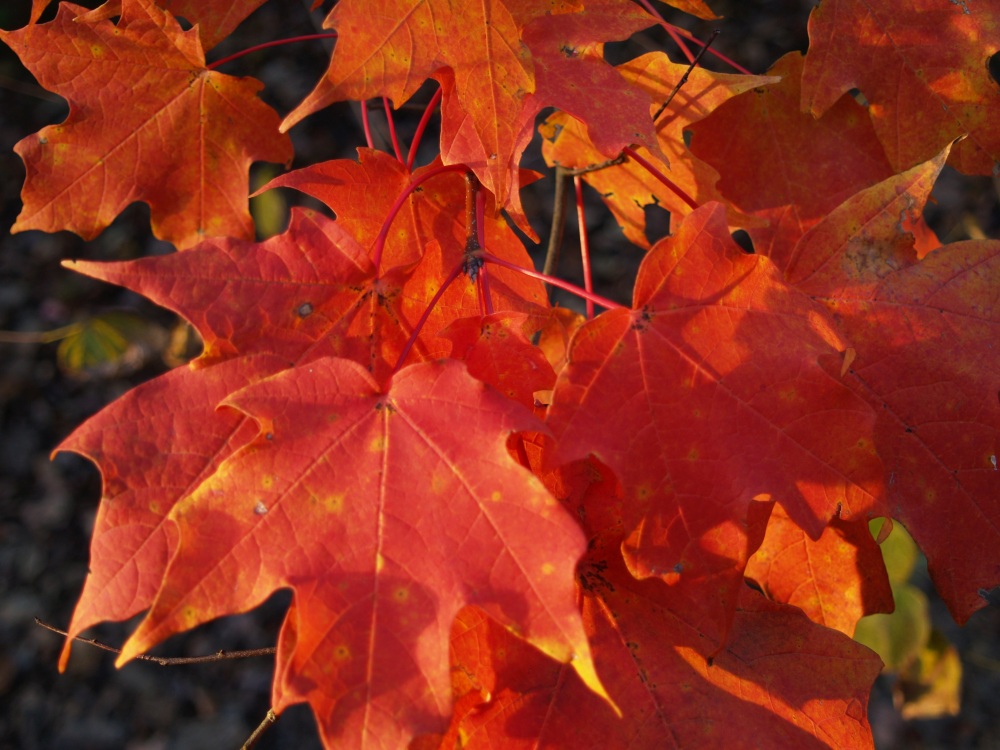
I find that any of these methods are easier than bagging and setting leaves out to be picked up, as many counties and cities allow. Most areas dump their leaves into large piles that are composted, and then the compost is available to the public. The worst of solutions is burning the piles of leaves, and why anyone would choose to waste this valuable resource, I can’t say.